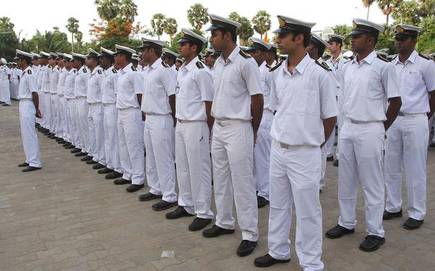
The number of active Indian seafarers, employed aboard Indian or foreign flagged ships, has grown by about 45 percent in the last three years.
According to the country’s Ministry of Shipping, in 2016 there were a total of 143,940 Indian seafarers working on vessels. The number was up at 208,799 in 2018.
The Ministry informed that the Government took several initiatives and policy decisions to help increase the share of Indian seafarers at the global level.
Namely, seafarers are being employed on ships through secured paths i.e. either by Indian shipowners on India-flagged ships, regulated under Merchant Shipping Act, 1958, or on foreign flagged ships through registered Recruitment and Placement Services License (RPSL) under Merchant Shipping (R&PS) Rules 2016.
With employment and welfare of Indian seafarers being regulated through relevant rules framed in consonance with Maritime Labour Convention, 2006, more and more foreign shipowners are engaging Indian seafarers on board their ships.
In addition, the promulgation of new, simplified, Continuous Discharges Certificate (CDC) Rules in 2017, making the entire process of issuance of CDC paperless and online, has facilitated an increase in the number of Indian seafarers.
Additionally, the Minister of State for Shipping (I/C) and Chemical & Fertilizers Shri Mansukh Mandaviya, said that the Ministry of Shipping has lifted an earlier ban on conduct of post sea modular courses, pre-sea GP ratings and pre-sea courses, that would also lead to a rise in the number of Indian seafarers on board ships.
The Ministry has also introduced a few new courses in line with International Maritime Organization (IMO) Model courses, while the Directorate General of Shipping is working to bring an exhaustive list of services under one digital portal to ensure transparency and efficiency.
Copyright Ships & Ports Ltd. Permission to use quotations from this article is granted subject to appropriate credit given to www.shipsandports.com.ng as the source.
